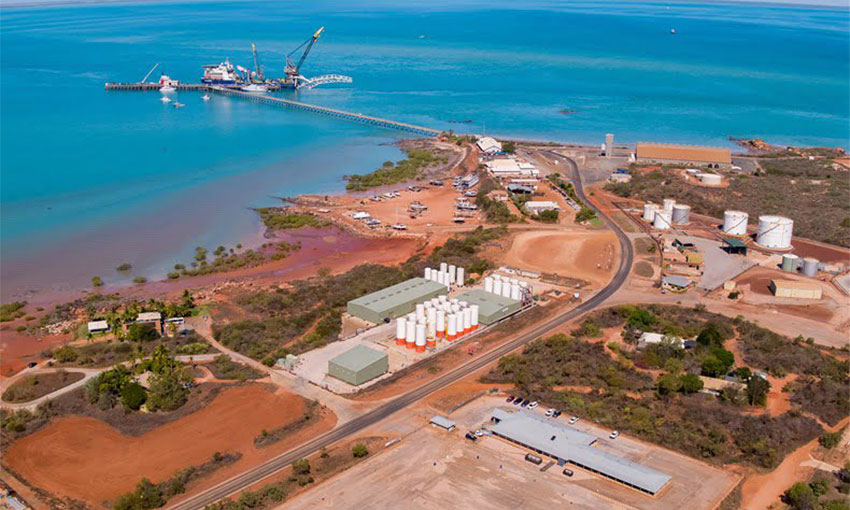THE PORT of Broome in Western Australia’s Kimberley is expected to gain first point of entry (FPOE) status by December next year.
The move follows on from the WA Shipping and Supply Chain Taskforce investigating disruption to state’s supply chains following floods in 2022 which severed road and rail links between the east and west coast.
The taskforce published a report in September last year outlining recommendations to reinforce supply chains.
A spokesperson for ports minister and the minister assisting the minister for transport, David Michael, has since told DCN that FPOE was one of a number of steps being implemented to help improve supply chains.
It was the first step in providing better logistics outcomes for Kimberley region businesses and the local resource sector.
“The WA government has pledged $6 million to fund the development of bio-security assets in Broome as considerable progress towards our aim of gaining first point of entry status for the Port of Broome, which would be the first step in providing better logistics outcomes for Kimberley region businesses and the local resource sector,” the spokesperson said.
“[This is] a necessary step towards gaining FPOE status for import of containerised goods and break-bulk project cargo etcetera. We are hoping FPOE will be achieved by December 2025.”
The taskforce’s main focus is to examine the state’s shipping industry and supply chains that link Western Australia with the east coast and international customers.
Some of the required measures are federal government responsibilities, including taxation reform to ease pressure on Australian owned shipping.
“WA is not aware of any firm decisions by the Commonwealth government in this regard, but we strongly support any moves that they take in this direction – changing taxation rules which currently have the effect of dissuading Australian owned shipping would be a very positive step forward for Australian shipping and seafarers,” the spokesperson said.
“The replacement of the fallen Fitzroy Crossing bridge with a much stronger and longer bridge within 10 months for $100 million was also a great achievement and provides effective defence against that risk in future.
“A further $54 million in road resilience works and airport flood defences has also been committed in the 2024/25 budget.”
Training and development of career pathways for maritime workers were identified by the report as weaknesses and the spokesperson said WA was working closely with the Commonwealth government on its strategic fleet project, which includes a major focus on training and career pathways for aspiring maritime workers.
“Our TAFE institutions are involved in these discussions and are willing partners towards this common aim.”
Plans for a dedicated Pilbara training facility had been superseded by a preference to work with existing training facilities serving the region.
In moves to shore up rail connections between the east and west coast the Australian Rail Track Corporation has advised the WA government that it had committed $240 million to flood mitigation works on the most at-risk sections of the east-west railway line.
The spokesperson said communications links between agencies had also been improved.
“Since the floods of 2022, communication and co-ordination between WA agencies and those in other states as well as with industry is much improved. In more recent emergencies, communications protocols that were developed in 2022 have been deployed with great success, allowing improved decision-making in real time.”
Among the task force recommendations was a proposal to develop shared warehousing for supermarkets, but the spokesperson said it was an area that needed further investigation.
“This is a new area for the state government to investigate and it will take longer for genuine needs for this type of investment to be assessed,” they said.
“To a large extent, supermarkets have already adjusted their inventory management to recognise exposure to supply chain risks.
“During more recent interruptions, stocks on hand in WA have proved to be more substantial such that shortages on supermarket shelves have been much less severe than in the initial 2022 event.”





